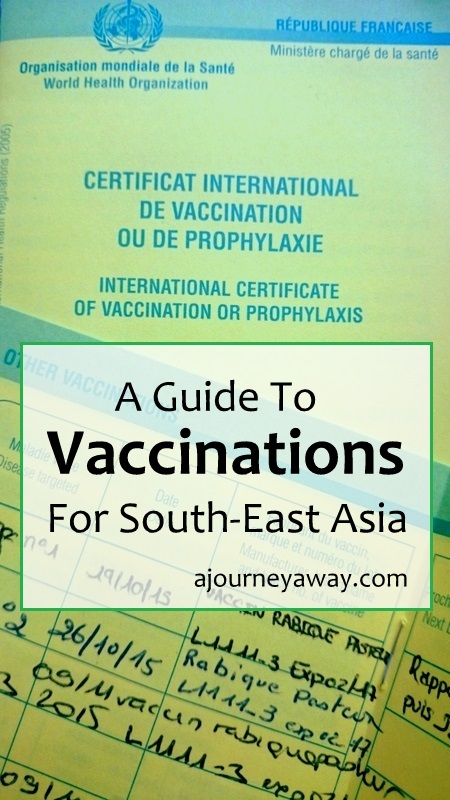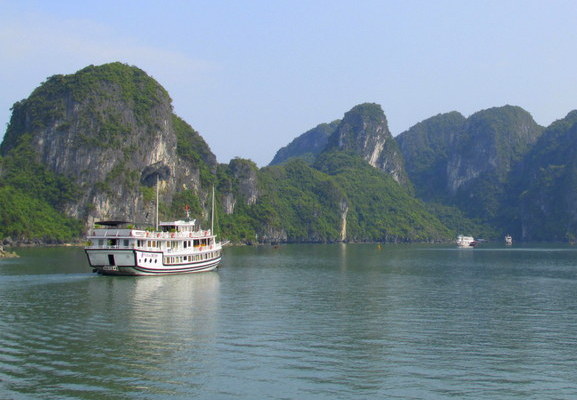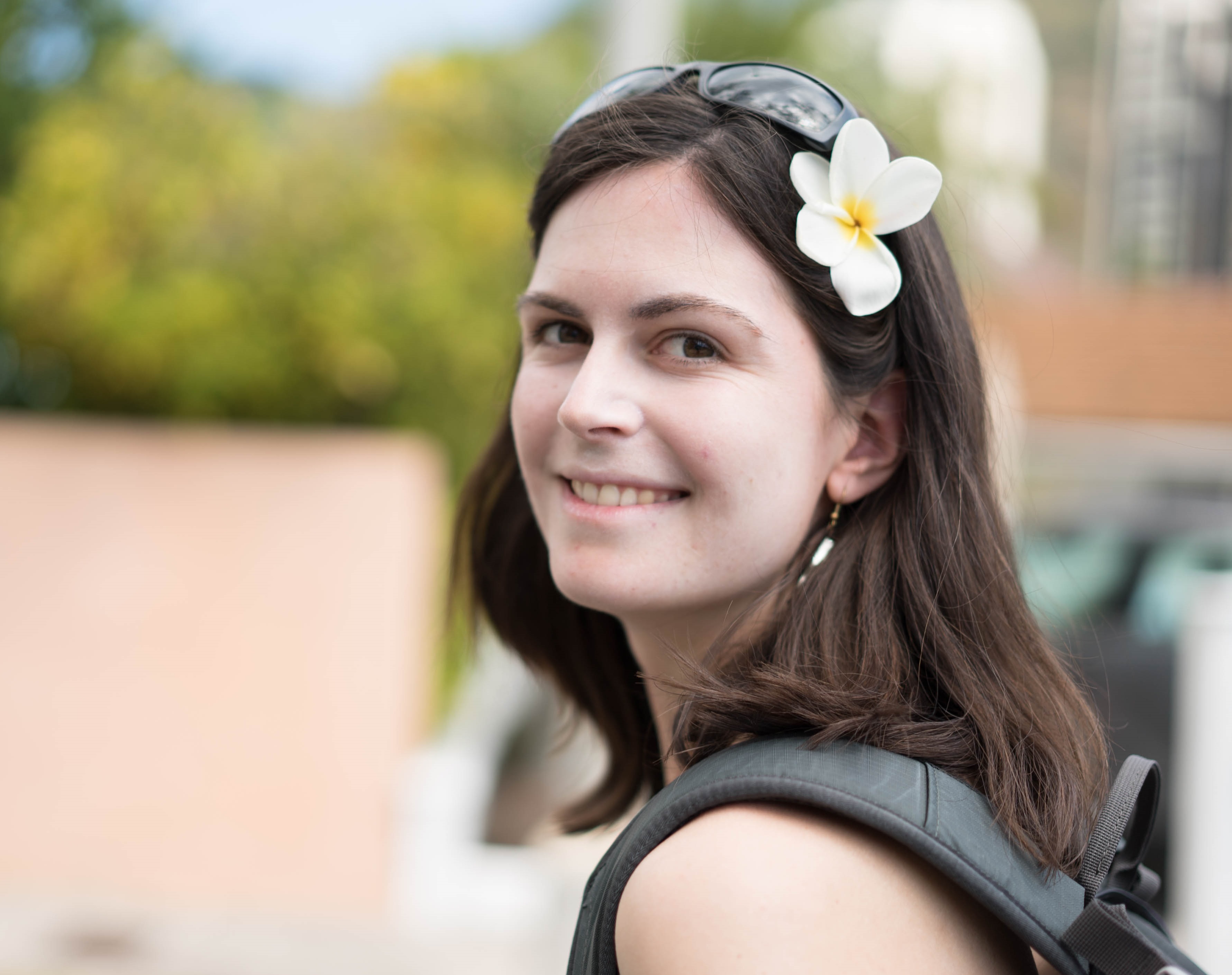A Guide To Vaccinations For South-East Asia
Now that we have defined our itinerary and budget, it is time to think about a concrete aspect of our trip: vaccinations.
This post is also available in:
 Français (French)
Français (French)
We are lucky enough to live in a city that has an international traveller’s centre. It took us one month to get an appointment there, we saw a doctor that advised us according to our itinerary and explained all the shots. If you don’t live near such a centre, make sure you see a doctor who is qualified to inform you about the vaccinations for an international trip.
If you are not sure what you have already had, you can always have a blood test done to see what antibodies you have. In that case, you might want to take care of it early enough.
We took the shots in that traveller’s centre in Nantes, France, but of course the prices may vary according to where you are.
The consultation with the doctor was standard, 23€ (~$24.50) like for a traditionnal doctor. We paid it only once although we saw a doctor each time we went back to the centre so we were able to ask more questions every time.
You will get an international certificate of vaccination to bring when you travel.

Basic vaccinations
Tetanus-diphtheria-pertussis, measles- mumps-rubella, hepatitis B: it depends on the countries, but you usually get the shots as a child. If not, you might want to consider taking them and talking to your doctor about it.
Recommended for South-East Asia
Hepatitis A
Vaccine: against a virus causing liver infection transmitted by a contaminated person or contaminated food and drinks. Vaccination is important since there is no treatment for it.
Prevention: keep a good hygiene, wash your hands frequently and be careful what you eat: peel and wash fruits and veggies yourself, avoid raw food, drink bottled water or in the worst-case, boil water before drinking it.
Price: 24,66€ (~$26.20).
You can find more info on the World Health Organization website.
Typhoid Fever
Vaccine: immunises for 3 years and is 80% efficient so prevention measures are equally important. It protects against a virus transmitted through contaminated food and water (or by a person that has the disease) as the result of poor hygiene.
Prevention: watch what you eat and drink, avoid risky food or beverages, drink only bottled water, don’t accept a water bottle if it has already been opened and not in front of you, at worst: boil water before drinking, be careful with ice cubes, eat food that has been cooked and served hot, dont rince food with tap water, peel fruits and veggies as much as possible before eating raw (or avoid raw food), make sure you wash your hands with soap before cooking or use hand sanitizer (containing at least 60% alcohol). You can also get a special water bottle with a filter, like the katadyn bottles, that are recommanded by doctors. We haven’t decided if we want to buy it yet so we can’t review it for you. If you have any insights about it, don’t hesitate to let us know in the comment section.
Price: 30€ (~$32), one shot to be received one or two weeks before departure.
You can find more info on the World Health Organization website.
Japanese Encephalitis
Vaccine: protects against a virus that causes an inflammation of the brain and transmitted by mosquitoes that attack essentially at night and in rural areas. There is no treatment for the virus. The same mosquitoes can transmit malaria but the shot doesn’t protect you from it.
Other diseases are also transmitted by mosquitoes like the dengue fever, the chikungunya fever and the zika fever but there is no vaccination against them to this day.
The doctor also stressed out that other kinds of encephalitis exist but are less known. Again, there is no vaccines and sometimes no treatments all together so prevention is crucial.
Prevention: use repellent-impregned mosquito net at night, use light but covering clothing (mosquitoes don’t bite through linen), use spray repellent on clothes or in laundry, use air-conditionning as it disturbs mosquitoes. The doctor recommends permethrin-based repelent like the ones from Insect Ecran brand.
Price: 2 shots 28 days apart (second shot should be received one week before departure), 90€ (~$95.75) each.
You can find more info on the World Health Organization website.
Rabies
Vaccine: against a virus that causes brain inflammation and transmitted by the bite of infected wild animals like dogs, monkeys, bats, and foxes among others. You would need to go to a hospital if you have been bitten or scratched immediately whether you have been vaccinated or not.
Prevention: avoid contact with animals you don’t know.
Price: 3 shots (boosters 7 and 21 days after the first shot), 40€ (~$42.50) each.
You can find more info on the World Health Organization website.
Vaccination against yellow fever was not recommended for us since we are not planning on going to South America or Africa on this trip.
You can also wait until you start travelling to get the shots. Some are very common in countries that are particularly affected and they will be much cheaper in Asia than in western countries. For my inner peace, I thought it was better to get it over with and not have to think about finding a trustworthy vaccination centre as soon we arrive in Asia.
We didn’t feel obligated or pushed by the doctor but we do think that prevention measures and vaccinations work together so we decided to do all the shots that he suggested.
Total cost: 377,66€ ($~401.70).
Note: there are affiliate links in this post, meaning we get a small commission if you place an order on the website through one of the links but to no extra cost for you.





